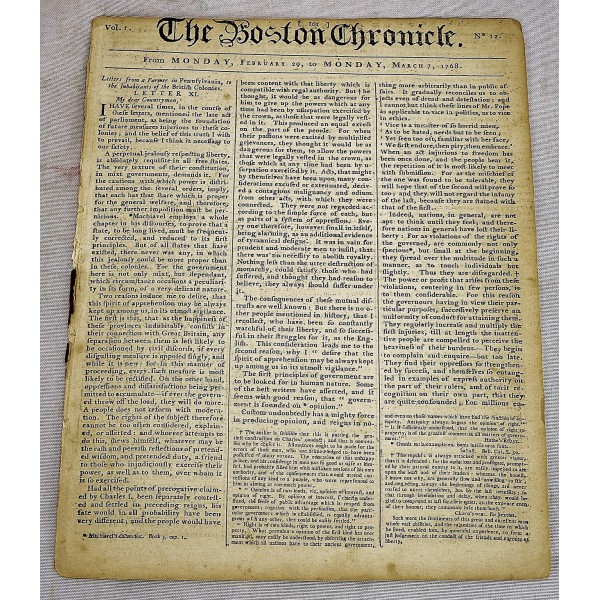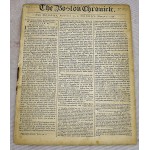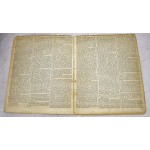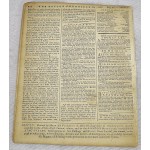Boston Chronicle, February 29 - March 7, 1768. Vol. I, No. 12.
Boston Chronicle, February 29 - March 7, 1768. Vol. I, No. 12.
John Mein; John Fleeming; John Dickinson
Boston [Mass.] : Mein & Fleeming, Newbury Street, 1768
8 page newspaper, pages loose. Includes pages 101-102, 107-112, lacking two leaves 103-106 p., (with the final part of Dickinson's letter). Held in wooden frame, mounted, under glass.
In 1767 Great Britain imposed the Townshend Acts on imports of tea and other goods to the British American colonies to pay for costs incurred in the French and Indian War. These taxes led to vociferous protest by American colonists, who called for a boycott of British goods. Much of this protest was centered in the trading port of Boston. John Hancock famously denied British customs officials the right of inspection on his ship, the Liberty. In nearby Salem, Mass. British custom officials were tarred and feathered. As a result of American protest, Britain sent a warship to Boston harbor to enforce its will, with two regiments of British red coats to occupy the city. The Boston Chronicle was a Tory newspaper established during this period by two Scottish immigrants. While an anti-patriot publication, the paper printed John Dickinson's, "Letters from a Farmer in Pennsylvania." Dickinson, called the "Penman of the Revolution," wrote 12 of these letters urging American colonists to unite against British tyranny. His letters were printed in colonial newspapers and helped turn popular opinion against the Townshend Acts. Dickinson later represented Pennsylvania in the Continental Congress and served in the Pennsylvania militia during the American Revolution.
In Letter XI, Dickinson cites the overreach of King Charles I, who was executed the English Civil War. "Had all the points of prerogative claimed by Charles the First, been separately contested and settled in preceding reigns, his fate would in all probability have been very different; and the people would have been content with that liberty which is compatible with regal authority. But he thought, it would be as dangerous for him to give up the powers which at any time had been by usurpation exercised by the crown, as those that were legally vested in it." As a result, the people regarded the government's acts as tyrannical: "They were not regarded according to the simple force of each, but as parts of a system of oppression. Every one therefore, however small in itself, became alarming, as an additional evidence of tyrannical designs. It was in vain for prudent and moderate men to insist, that there was no necessity to abolish royalty. Nothing less than the utter destruction of monarchy, could satisfy those who had suffered, and thought they had reason to believe, they always should suffer under it." It is interesting that the concept of a system of oppression existed in pre-revolutionary America. Dickinson goes on to attack the basis of British taxation on Americans, who have no representation in Parliament. His conclusion is that by accepting these taxes American would be forfeiting their liberties, which would lead to further injustice by the government, "future vassalage." He concludes: "I regard the late act as an experiment made of our disposition. It is a bird sent out over the waters, to discover, whether the waves, that lately agitated this part of the world with such violence, have yet subsided. A direful foreteller of future calamities." Refs: Alden, John E. 'John Mein; Scourge of Patriots,'Colonial Society of Massachusetts, Publications XXXIV(1942), 571-599.



